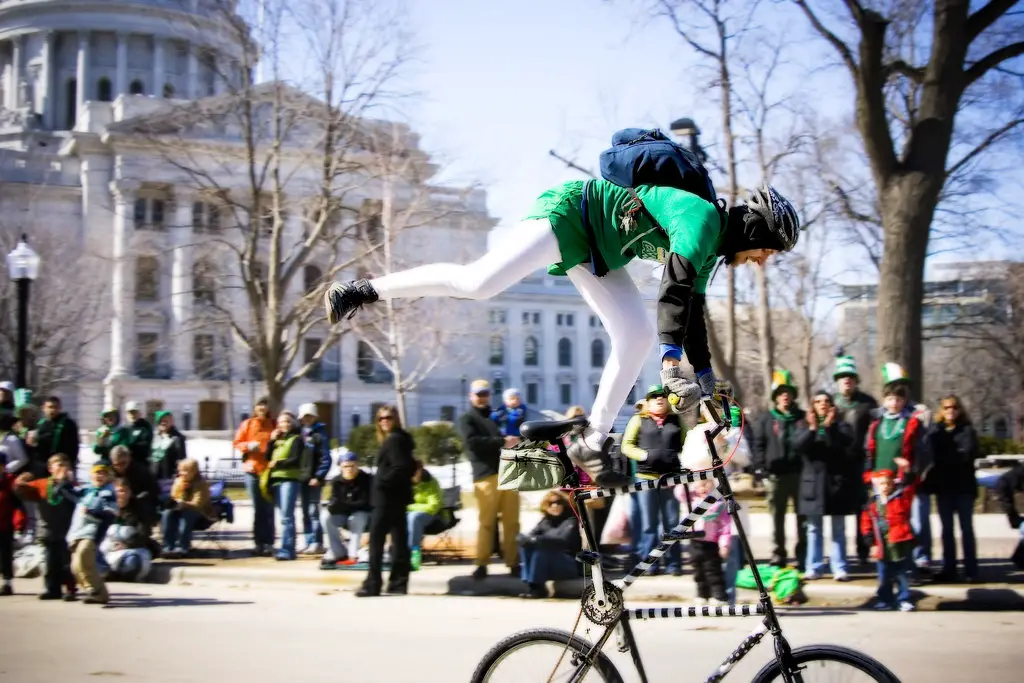Walking is the simplest, cheapest and easiest way of getting around. In many big congested cities, it’s also the quickest way to move. However the simplicity of walking can sometimes make it difficult to ‘sell’ as a concept to government, business and the general public.
You see the problem is, that walking doesn’t really require any extra technology or equipment. ‘But where’s the problem in that?’ I hear you say. For many of us, that’s exactly why we like walking and the idea of walkable cities. However in our gadget-obsessed world, this lack of ‘hardware’ is often a problem. Perhaps the most worrying part of this is that politicians seem to be the most technology-obsessed of everyone, yet they hold most of the funding for walkability.
Our obsession with gadgets
This could explain the current whirlwind success of cycle hire schemes that are appearing in cities all over the world. Bike-share systems like the London Cycle Hire Scheme have a very tangible, branded piece of technology in the hire bicycles. This is why its so much easier for these projects to get £25million worth of sponsorship from big business like Barclays Bank. In addition to this, Boris Johnson – the Mayor of London, must be very happy that the popular hire bicycles have been nick-named ‘Boris-bikes’. Its physical schemes like these, that can really capture the imagination (and buy-in) of urban people and decision-makers alike.
Rewarding kids for walking
So what has walking got? Apart from the $57billion footwear industry, the sorry answer is: not much!
However, an innovative new system called Step2Get is being tested out with school kids in London. In an attempt to get children to take more exercise and cut congestion, the new system rewards kids for walking to school. If a child walks to school five times they get a free cinema ticket, if they walk eight times they get a £5 shopping voucher!
To prove they have walked to school, kids must swipe electronic cards on several scanners at points along the journey. The swipe cards use Near Field Communication (NFC) and are similar to other transport smart-cards like London’s electronic ticketing system, the Oyster card.
In two pilot schemes at London schools the system managed to get 18% of children to switch to walking. This reduced congestion on the roads, buses and also encouraged children to cross the street at safer points along the route. While the project has the inevitable expense of rewards for the children, its been estimated that the benefits far out-way the costs. When all the benefits to transport, police and schools were added up, it was estimated that one scheme (costing £10,000) saved government over £245,000!
London vs. New York
Due to the success of these pilot projects, UK Government has teamed up with the US to launch a walking competition between kids in London and New York. The project will use the same swipe card technology, plus game-dynamics to encourage over 30,000 children to walk to school. This massive game between kids on either side of the Atlantic will see each school gaining points for walking, with the final result announced at the 2012 Olympics.
Walking – there’s an app for that
As NFC technology is included in more and more smartphones, its likely that we will see an increase in similar technology and apps that encourage behaviour change. This includes the recent launch of Chromaroma. Chromaroma is an online game that allows commuters to compete against each other using data from their Oyster smartcards and Cycle Hire usage. Players get more points for sustainable travel and getting off the bus a stop early.
Other examples include an augmented reality app that gets you walking in the real world while you shoot monsters on your phone! And a Swedish fashion company that put NFC tags in their shoes allowing people to ‘check-in’ to Facebook and Twitter using their feet! With all these new apps and tools it looks like walking is finally getting technological, whether we like it or not.
Photo: EGfocus


